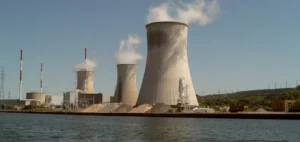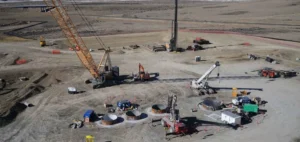The Swedish government has announced a draft law to reauthorise uranium mining on its territory, with the measure expected to come into force on January 1, 2026. The stated goal is to reduce the country’s reliance on imports of critical raw materials and reinforce long-term energy security. The move aligns with the right-wing government’s intent to revive the nuclear sector in response to the projected rise in electricity demand.
According to the Geological Survey of Sweden, the country holds approximately 27% of known uranium resources in Europe. The government, which currently holds a majority in parliament, claims it intends to tap this potential to increase national autonomy in fuelling its six operational nuclear reactors, which are distributed across three sites.
Ban initially driven by environmental and economic concerns
Uranium mining was prohibited in 2018 by a Social Democratic government, citing risks of soil and water pollution as well as the high cost of extraction at the time. The ease of sourcing uranium on global markets had also been a key factor in that decision. Since then, Sweden has mainly imported uranium from Canada, Australia, Kazakhstan and Namibia.
Swedish Minister for the Environment Romina Pourmokhtari defended the reversal by pointing to geopolitical tensions and the need to reduce dependence on authoritarian regimes. “We do not want to depend on countries with poor conditions, countries that are dictatorships,” she said during a press briefing in Stockholm.
Domestic electricity demand projected to surge
The government estimates that electricity consumption will reach at least 300 terawatt-hours (TWh) by 2045, compared with around 140 TWh today. In 2024, the International Atomic Energy Agency (IAEA) reported that nuclear energy accounted for 29.1% of Sweden’s electricity generation, confirming the sector’s central role in national energy planning.
In parallel with the legislative revision, the government also plans to eliminate the municipalities’ right of veto, which previously allowed local authorities to block uranium exploration or mining projects. The removal is intended to standardise decisions at the national level and accelerate mining development.
Environmental sector voices criticism
Several environmental organisations have voiced opposition to the initiative, highlighting the risks associated with uranium extraction. In a statement released in January, the Swedish Society for Nature Conservation (Naturskyddsföreningen) warned of “damage to soil, water and biodiversity” as well as the potential loss of valuable agricultural land.






















